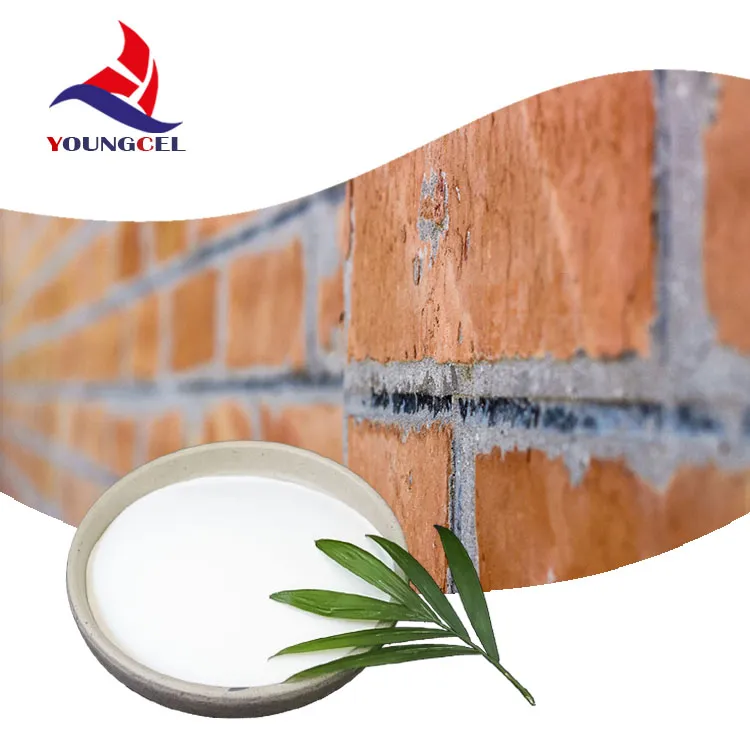Understanding HPMC for Tile Adhesives
In the construction and renovation industry, the quality and durability of tile installations can significantly influence the long-term satisfaction of end users. One critical component that plays a vital role in achieving such quality is Hydroxypropyl Methylcellulose (HPMC), a widely used additive in tile adhesives. This article explores the properties, benefits, and applications of HPMC in tile adhesives.
What is HPMC?
Hydroxypropyl Methylcellulose is a cellulose ether derived from natural cellulose. It is produced by modifying cellulose through hydroxypropylation and methylation processes. HPMC is a white, odorless powder that is soluble in cold water. Its unique chemical structure contributes to various desirable properties, making it an essential additive in many construction materials, particularly tile adhesives.
Key Properties of HPMC
1. Water Retention One of the most significant advantages of HPMC is its outstanding water retention capability. This property is crucial for tile adhesives as it allows for a longer open time, giving installers sufficient time to position tiles correctly without the adhesive drying prematurely. The water retention capability also ensures better adhesion by keeping the tile adhesive workable for extended periods.
2. Thickening Agent HPMC functions as an excellent thickening agent, which allows manufacturers to create tile adhesives that are easy to apply without being overly fluid. This property helps in maintaining the desired consistency, facilitating better application and reducing slippage of tiles during installation.
3. Improved Adhesion The use of HPMC in tile adhesives enhances their bonding strength to various substrates, including concrete, brick, and cement board. This improved adhesion is essential for ensuring that tiles remain securely in place over time, preventing issues like cracking, lifting, or peeling.
4. Elasticity HPMC contributes to the elasticity of tile adhesives, allowing for some movement and flexibility as temperature changes occur. This feature is especially beneficial in environments where thermal expansion and contraction might occur, reducing the risk of damage.
Benefits of Using HPMC in Tile Adhesives
hpmc for tile

The incorporation of HPMC in tile adhesives significantly impacts their performance and the overall effectiveness of tile installations
1. Ease of Use The improved workability and extended open time make HPMC-enhanced tile adhesives easier to use for both professionals and DIY enthusiasts. This can lead to fewer errors during installation, resulting in higher-quality finishes.
2. Versatility HPMC is compatible with various types of tile adhesives, including those intended for thin-set, medium-bed, and thick-bed applications. This versatility makes it suitable for a wide range of tile materials, including ceramics, porcelain, and natural stone.
3. Enhanced Durability Tiles installed with HPMC-based adhesives are often more durable and resilient, leading to longer lifespans and reduced need for maintenance. This durability is particularly valuable in high-traffic areas or locations exposed to moisture.
4. Cost-Effectiveness While HPMC may add some cost to tile adhesive formulations, its benefits can outweigh these expenses by reducing installation errors and extending the lifespan of the installation, ultimately making it a cost-effective choice.
Applications of HPMC in Tile Adhesives
HPMC can be found in a broad range of tile adhesive products, including dry-mix mortars and ready-to-use formulations. It is particularly useful in environments that require robust adhesion, such as kitchens, bathrooms, and outdoor areas. The adaptability of HPMC also allows it to be tailored for specific applications, ensuring that adhesive performance meets the unique demands of different projects.
Conclusion
In conclusion, Hydroxypropyl Methylcellulose (HPMC) is an invaluable additive in the formulation of tile adhesives. Its unique properties enhance the performance, durability, and ease of use of these essential construction materials. As the industry continues to evolve, the importance of HPMC in achieving high-quality tile installations cannot be overstated. Whether for residential or commercial applications, HPMC enhances the overall integrity and functionality of tile work, ensuring satisfaction for both installers and end users alike.




